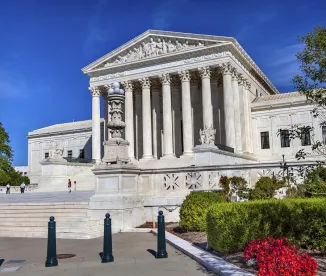The United States Supreme Court agreed to hear a Fourth Circuit climate lawsuit decision this month. The City of Baltimore brought a climate lawsuit seeking to hold Chevron, ExxonMobil, and other energy companies responsible for climate change-related damage to the city’s infrastructure. The Fourth Circuit decided that the suit falls under the purview of state court jurisdiction. Chevron and Exxon were joined by a number of other companies in their petition to the Supreme Court to review the Fourth Circuit’s decision, arguing that the claims are better suited for federal court.
In March of this year, the companies sought to have the Fourth Circuit move the case to federal court, arguing that the companies were working as “federal officers”, thereby entitling them to removal, which the Fourth Circuit rejected unanimously. Now, the companies ask the Supreme Court to decide a split among the circuit courts on this procedural issue. The City is relying on decisions from the Ninth Circuit and Tenth Circuit to validate and confirm the Fourth Circuit’s decision, which have both remanded similar suits back to state court when analyzing this “federal officer” issue of removal. The energy companies argue that these cases deal with energy and security policies, as well as foreign affairs that can only be addressed by the federal court.
Even though the Supreme Court is reviewing a seemingly narrow procedural issue, many believe that the outcome of this case will have massive impacts on other pending climate suits across the nation. The hope is that the Supreme Court will guide courts on whether these municipality lawsuits should be filed in state or federal court. Plaintiffs in the climate lawsuits believe they will see greater success in state courts, while the energy industry representatives involved believe they will fare better in federal court. At the very least, this case is proving to stall development in other jurisdictions, as many courts stay further rulings until the Supreme Court reaches its decision, which is anticipated to come in the summer of 2021. The United States Supreme Court’s decision on whether federal or state courts have jurisdiction to hear climate lawsuit claims will have a huge impact on all pending and future climate lawsuits brought in the United States.




 />i
/>i

